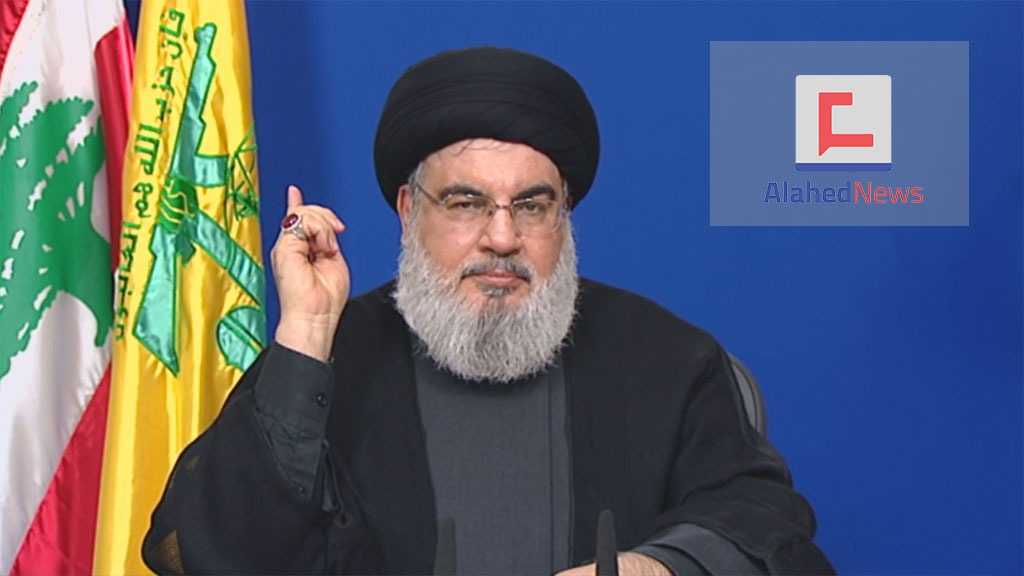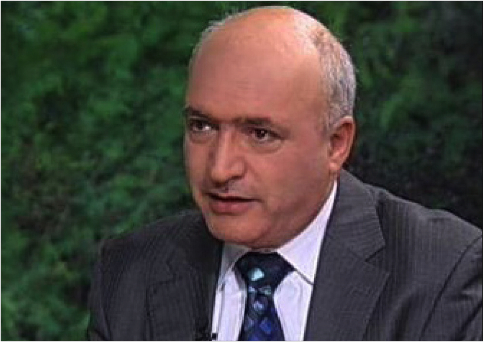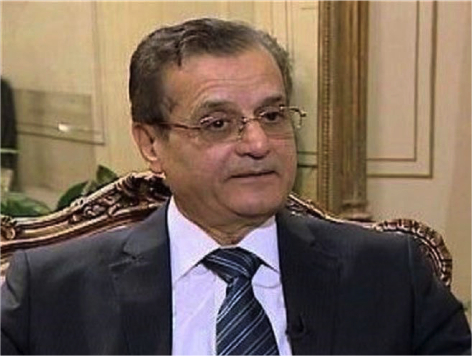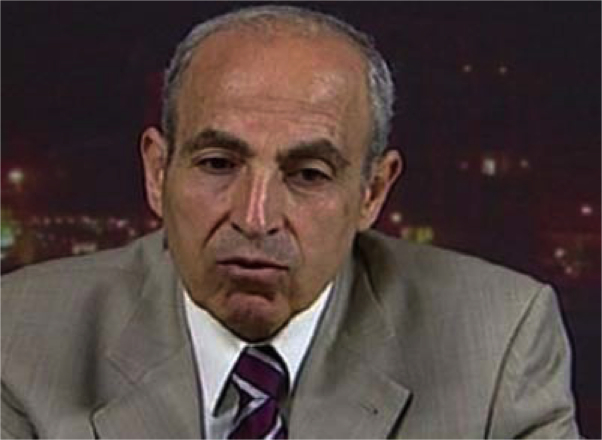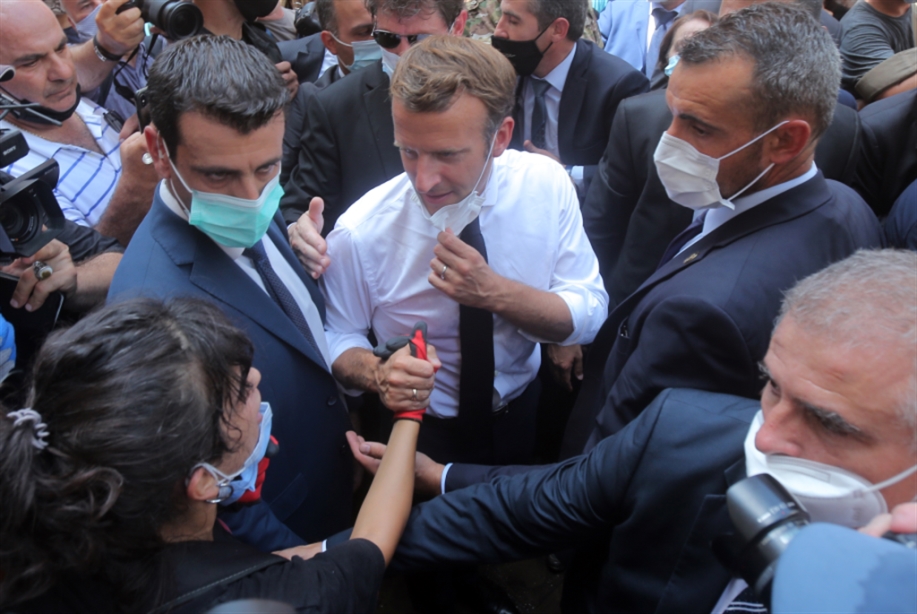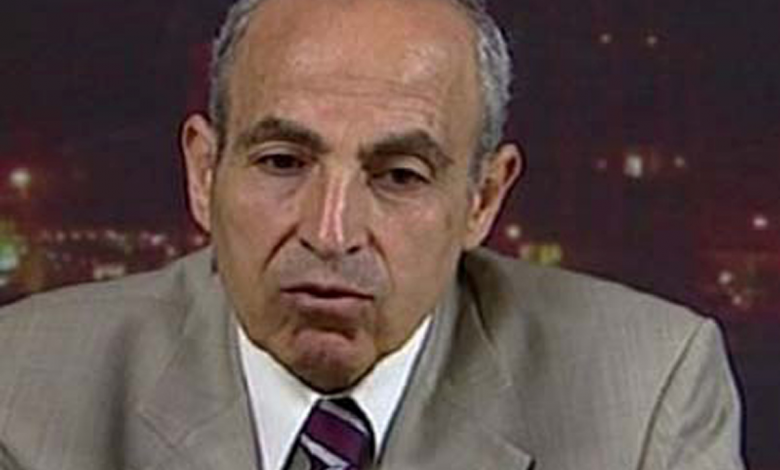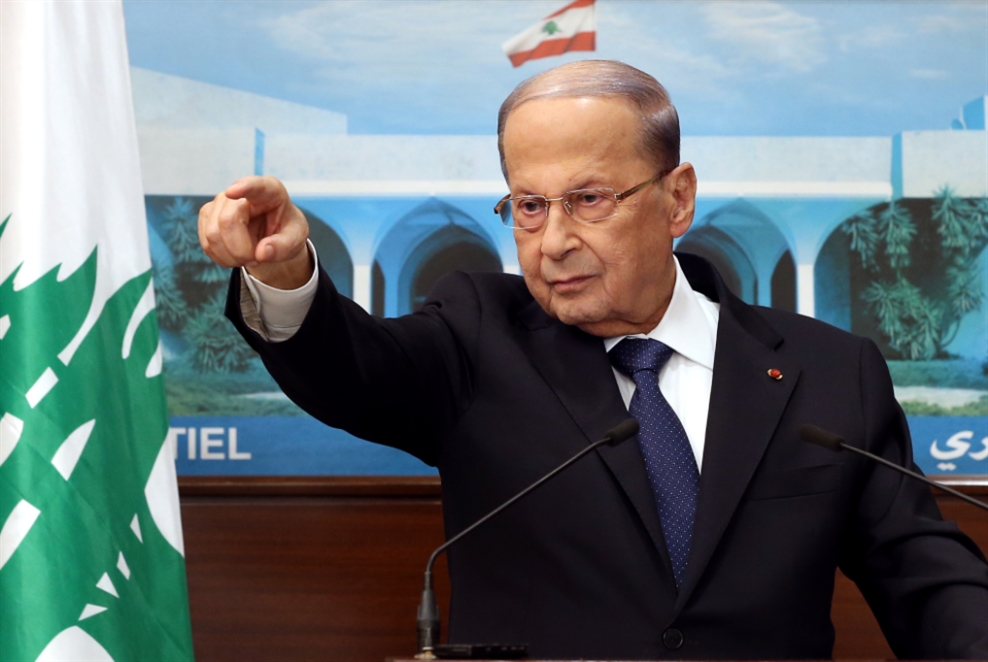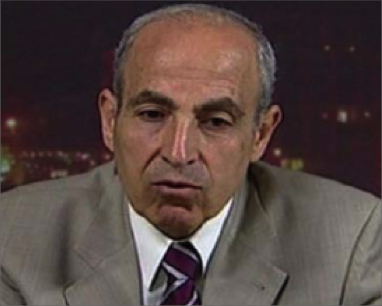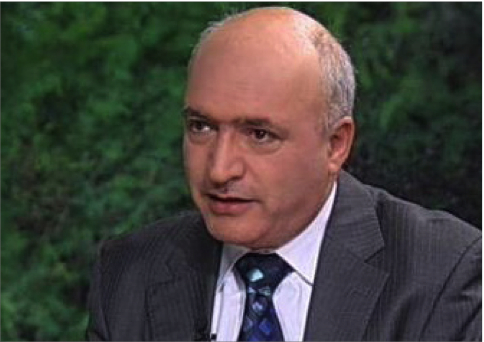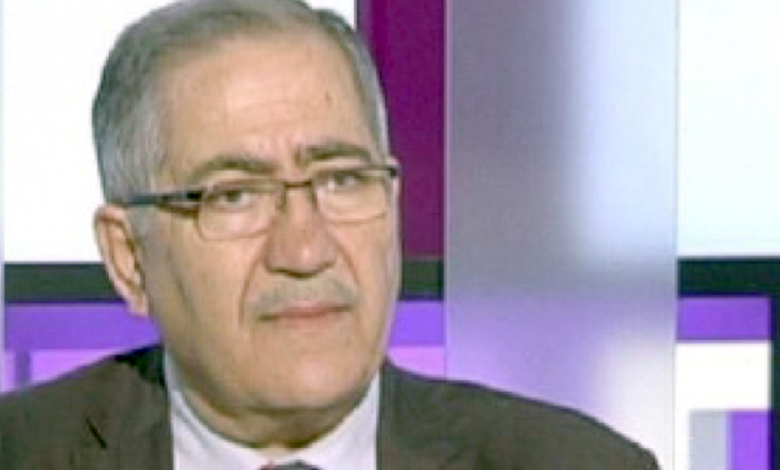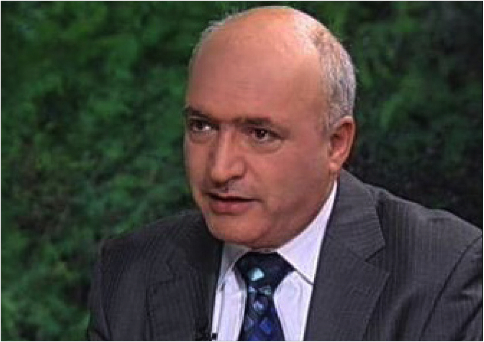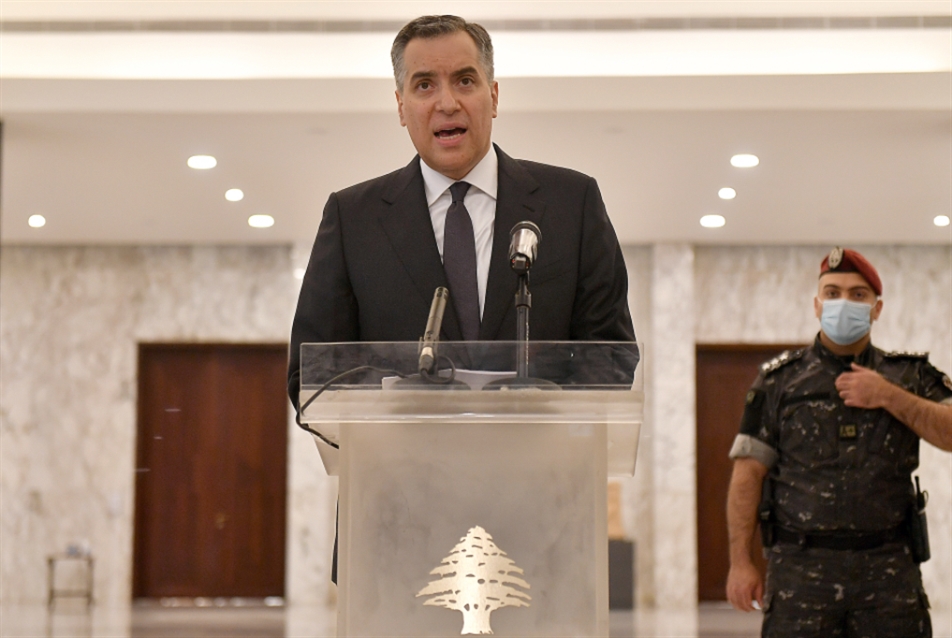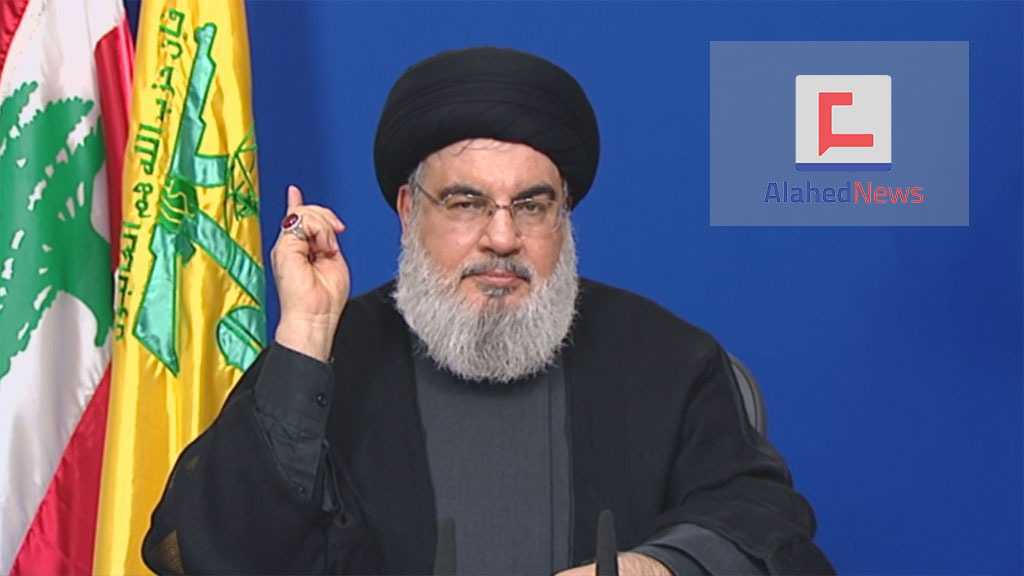
Speech of Hezbollah’s Secretary General, His Eminence Sayyed Hassan Nasrallah, tackling the latest developments – Tuesday 9/29/2020
I seek refuge in Allah from the accursed Satan. In the name of Allah, the Most Gracious the Merciful. Praise be to Allah, Lord of the Worlds, and prayers and peace be upon our Master and Prophet, the Seal of Prophets, Abi al-Qassem Muhammad Bin Abdullah and his good and pure household and his good and chosen companions and all the prophets and messengers.
Peace and God’s mercy and blessings be upon you all.
I haven’t addressed you for a month, since the tenth of Muharram. Important developments and events have taken place during the past few days and weeks, putting me at your service, God willing, to tackle these developments and topics.
The first point:
Let me start with the first point and perform a moral duty towards Kuwait and the people of Kuwait. I start with the first point, which is to offer condolences over the departure of His Highness the Emir of Kuwait Sheikh Sabah Al-Ahmad Al-Jaber Al-Sabah to Kuwait, its people, the crown prince, the Emir’s family, the government, the National Assembly, and the people of Kuwait on this occasion.
Of course, we in Lebanon remember the late Emir’s personal and great role in ending the Lebanese civil war in the late 1980s. Likewise, the Lebanese people, us included, will never forget the distinguished position of the Emir, the government, the people, and the National Assembly of Kuwait during the July war and in the face of the “Israeli” aggression on Lebanon. The political position was clear and decisive. We will never forget their generous contribution to the reconstruction of what the Zionist aggression on Lebanon destroyed in 2006.
From our position as nationalists and a resistance movement in the face of the “Israeli” aggression and the Zionist project, we commend Kuwait’s coherent position, under the leadership of its late Emir, in the face of all the pressures imposed on Arab countries, especially the Gulf ones, to join the convoy of normalization.
Kuwait still maintains this honorable and coherent position that is consistent with its national, Arab, and Islamic commitments towards al-Quds and Palestine.
On this occasion, I ask Allah Almighty to grant the late Emir His mercy and forgiveness. I ask God Almighty to preserve Kuwait and its people and enable it to calmly transition to the new stage.
The second point:
We start with the local developments. This is also related to security. The second point concerns the events in the north. It begins with the security side. I call on the Lebanese to take note of what happened during the past few weeks in the town of Kaftoun where three of its youths and men were martyred. This in addition to the confrontations that took place between the Lebanese army and armed groups in the north, resulting in the martyrdom of Lebanese army officers and soldiers, as well as the great confrontation that took place in the Wadi Khaled area, fought by the Internal Security Forces, especially the Information Branch, with the support of the Lebanese army, achieving great accomplishments.
At this point, we, as Lebanese, must appreciate these efforts and these sacrifices, and we must also extend our condolences to the Lebanese Army leadership and the families of the martyrs of the Lebanese Army for the loss of their loved ones.
We must also commend these families for their patience, steadfastness, and enormous sacrifices in defending Lebanon, its safety and security. We must also praise the position of the people and their rallying around the army and security forces in the north, in the northern villages and towns where these confrontations took place.
By exposing these diverse groups, it has been revealed so far – from those killed, arrested, and identified – that there are groups made up of Lebanese, Syrians, and Palestinians who are armed with various weapons. According to the available information, quantities of explosive materials, weapons, and explosive belts were found with these groups. But the most dangerous were the mortar rounds and LAW missiles. This means that these groups were not only preparing for suicide attacks or small and limited operations here and there. But they were preparing themselves for a major military action.
In the coming days and weeks, investigations conducted by the security services might reveal to the Lebanese people the magnitude of the great achievement of the army, the internal security forces, and the Information Branch in the recent confrontations, as well as any calamity that was thwarted by the grace of God Almighty and the efforts of all these people in the north. In any case, we have to wait.
Regarding this point, if you remember correctly, I issued a warning a month ago and called on you to pay attention. I said that there was a revival of Daesh in Iraq, Syria, and Lebanon. Unfortunately, some people responded with sometimes sharp, negative, and violent comments. In any case, hatred, blindness, and ignorance sometimes prevent some people from seeing the facts. This is primarily because they are unable to read what is happening in the region.
In our region, specifically after the “assassination of the era” by the United States of America that saw the targeting of martyr Commander Hajj Qassem Soleimani and martyr Commander Hajj Abu Mahdi Al-Muhandis, the Iraqi people’s demand for the withdrawal of American forces from Iraq, and the decision of the Iraqi parliament in this regard, the US started reviving Daesh. If you notice since that time, Daesh has returned to Iraq, launching operations and taking control of some territories, mountains, and valleys, storming and setting up ambushes.
They are in Syria as well, in Syria’s Jazira region. Daesh was resurrected in many areas and started its operations. It is natural that it starts preparations in Lebanon to justify the continuing presence of US forces in the region under the rubric of the international coalition to confront ISIS. It is also that the battle is not between one country against another. Here lies the problem of reading the situation in Lebanon. Some people in Lebanon always view Lebanon as an island isolated from everything that is happening in the region.
Lebanon is part of the region – in terms of events and its fate, its past, present, and future as well. Therefore, when Daesh is revived, it is revived in the entire region, and this is what is happening. These large groups have been raided and arrested. They are still searching for other groups, while others have not emerged yet. All these belong to Daesh. The investigations proved that these groups pledged allegiance to Daesh and follow it. They received instructions to recruit, organize, start formations, and prepare, awaiting zero hour. We do not even know what exactly what was being prepared for our country.
In this context, I once again call for caution and to be aware of what is being prepared for the region. When the Americans reach a dead end while confronting the people of the region and when they sense failure, they resort to these methods that we are all familiar with. This matter needs attention, caution, and awareness. It also requires everyone to stand behind the military and security institutions to confront this imminent and approaching danger.
The third point:
The third point tonight concerns the southern border. Along the border with occupied Palestine, the enemy’s army is still in the highest state of alert, hiding, exercising extreme caution, and attention. This is a good thing. Perhaps this is the longest period of time that the enemy’s army experienced such suffering on our southern borders with occupied Palestine since the establishment of the “Israeli” entity that usurped Palestine in 1948. Its soldiers do not dare to move. Sometimes at night, we might notice a tank moving here or there. It is not clear whether there are soldiers in the tank because they use automatic vehicles and tanks. In any case, we are following up. Our decision is still standing. We are following up, watching, and waiting patiently because as I said on the tenth of Muharram the important thing is to achieve the goal. We will see what will come in the coming days and weeks.
The fourth point:
Another point related to the “Israeli” issue. A little while ago, the prime minister of the enemy’s government was speaking at a live broadcast before the United Nations. Before I entered this place to talk to you, the brothers told me what he said. Some of what he said was to incite the Lebanese people against Hezbollah. As usual, he took out his maps, locations, etc. He talked about a location here between Beirut and the southern suburbs of Beirut. He claimed that this place is where Hezbollah stores rockets and that it was near a gas station. He then warned the Lebanese that if an explosion happens, it will be similar to the port blast.
Because there is no time now, I will rely on the brothers to call. Hezbollah’s media relations department are supposed to start making calls. I am talking to you now, and they may have started or they will start contacting the various media outlets to meet at a close point at 10 p.m. Since I am still giving my speech and I do not want to disrupt it… In any case, anyone who would like to go to that area from now, there is no problem. We will allow the media to enter this facility and see what’s in it. Let the whole world discover Netanyahu’s lie live on air. Of course, he finished his speech a little while ago. If there are missiles there, and now I am talking to you, and its 8:43 p.m. according to my time.
I think that if Hezbollah has placed dozens of missiles or even one missile there, it will not be able to transfer it within half an hour from my announcement. Of course, this will not be a permanent policy; this does not bind us, Hezbollah and the resistance, to the principle that whenever Netanyahu talks about a place, we call the media to check it out. This means that Netanyahu will have something for you to do every day.
However, we accepted to resort to this method because we understand the sensitivities surrounding the explosion that took place at the port on August 4 and the lies, deception, and injustice that befell us after the explosion. Any local and foreign media outlet that wants to go can coordinate with the media relations department from now. And at 10 p.m., the media relations department in coordination with the brothers will determine the rendezvous point and head to the facility from there.
And whoever wants to go now to make sure that we are not removing the rockets, that is not a problem. In any case, he specified the exact location. This is only for the Lebanese to be aware in the battle of awareness and incitement – we do not produce rockets neither in the Beirut port nor near a gas station. We know exactly where to store our missiles.
I move to the political aspect. In the internal political aspect, we have the issue of the government – meaning the formation of the new government – the French initiative, and the recent conference by the French President Mr. Macron. I would like to talk about this topic.
First:
Let me explain to the Lebanese public what is happening. There are some details that I will, of course, not delve into. There are also some facts that I will postpone talking about it to keep the doors open. But I would like to paint a clear picture – I think it will be sufficient – of what is happening. I will also talk about our remarks on the French President’s conference and where we are heading.
Regarding the government, after the port explosion, August 4, the resignation of Prime Minister Hassan Diab’s government, the visit of the French President to Lebanon, and the launch of the French initiative. Two meetings took place in the Pine Residence with the presence of the French President and eight parties, forces, bodies, or parliamentary blocs. In the second meeting, there were nine parties. An initiative was proposed. The text [of the initiative] is distributed and published in the media and on social media. People can read it, and there is nothing hidden regarding this topic. We all said we support and back the French initiative.
The first step is to form a new government. I will delve into the details shortly. The first step in the first stage is to designate a prime minister to form a government. I will say things as they are and mention names because the Lebanese people have the right to have clarity. Everything is clear because there are no secrets in Lebanon, nor am I revealing any. I am stating facts. Who are we going to designate?
We agreed. There is no problem with parliamentary blocs consulting each other. If Prime Minister Saad Hariri wants to be prime minister, it’s welcomed. We did not have a problem. If he liked to name someone, we see who he will name, and we discuss it among each other. We either accept it or not. This was the beginning of the discussions. Of course, during that period a club was formed. We call it the Prime Ministers Club.
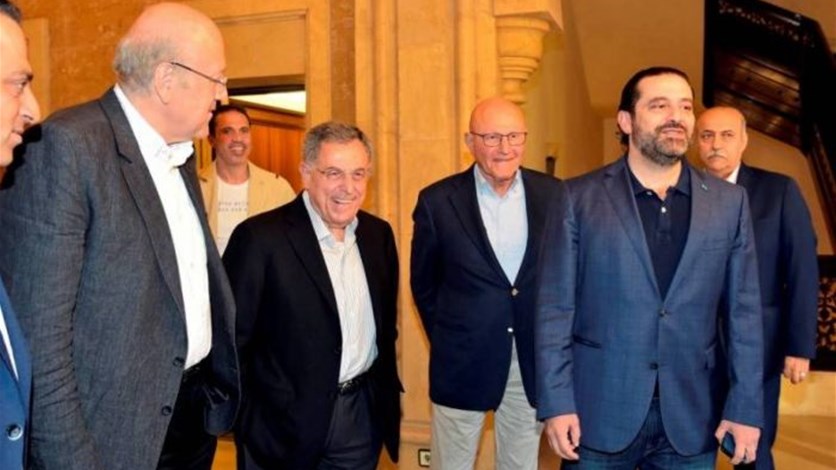
We will talk about the club of the four former prime ministers more than once. Prime Minister [Salim] Al-Hoss (may God prolong his life) is still alive, and he is one of the former heads of government. Hence, this club is made up of the prime ministers of the previous four governments. Prime Minister Hassan Diab also became a former prime minister. So, they are two. However, this club started meeting.
They said that they met and sat with each other. We do not have a problem. On the contrary, we are calling for the broadest possible understanding between the political forces, parties, and blocs in Lebanon. They have representative blocs and they represent political forces, so they presented three names with the preference of Mr. Mustapha Adib, or that was our understanding. Of course, all indications suggested Mr. Mustapha Adib.
Of course, that night as people were all in a hurry and during the 15-day deadline, we asked about the man. The information we got was reasonable, good, and positives.
In order to facilitate matters, we did not set conditions or demanded to sit with him. We did not engage in a prior understanding. Now some people might say this was a mistake, while others might agree. This is another discussion. But we did so to make matters easy. We wanted to facilitate matters, and who is most important in the government? the prime minister. The most important thing in the government is the prime minister.
We relied on Allah Almighty and on the rule that – yes, we want a government to be formed with the widest representation and support so that it can do something at this difficult stage. We relied on God, and this step was accomplished. Excellent! Everyone was relaxed. The French President came on a second visit and met with some people after appointing Mr. Mustapha Adib. He said: “Please go ahead and begin. We want to complete this reform paper, etc.”
Following the appointment of Mr. Mustapha Adib, protocol meetings with the parliamentary blocs took place, and the matter was concluded. The prime minister-designate was asked to do so. Of course, he is a respectable man with high morals, and I do not have any remarks on him.
He was told to wait for the parliamentary blocs to negotiate with since they are the one who will give their vote of confidence to the government. It is not enough just to give a name. there might be blocs that might not give a name, but they can give a vote of confidence.
However, they did not talk to anyone. According to my information, no discussions, meetings, or extrapolation of opinions took place. The President of the Republic later had to send for some heads of blocs or representatives of blocs to discuss them. It was considered that there was no reason – I will say why – to even consult with the President of the Republic, who is in fact here not a political force, but according to the constitution, a partner in forming the government.
This means that from the start the prime minister-designate should go to him and discuss with him, not bring him some files. He should discuss with him the distribution of portfolios, the names of the ministers, the nature of the government, the perception of the government. This never happened, not even once. It is as if the government should be formed and the President would be told that this is the government, these are the names, this is the distribution of the portfolios. Then, President Aoun would either sign on the government or not. There is no third option. If he signs, it means that this is a de facto government. Neither the distribution of portfolios nor the names were discussed with him. what does mean? What is the most important authority the president has following the Taif Agreement? It is taking part in the formation of the government. It means that it is over.
And here the French must pay attention to where they are making mistakes. This means that they are covering a political process that would have led to the elimination of the most important remaining powers of the President of the Republic in Lebanon.
And if President Aoun did not sign, there will be an upheaval in the country. The media and the opponents are ready, and there is French pressure. If President Aoun does not sign, he will be accused of disrupting [the formation] to support Gebran Basil. So, nothing happened. I don’t know if there were negotiations with the Progressive Socialist Party or the [Lebanese Forces]. But I know that there were negotiations with the blocs that are our friends and allies and are the parliamentary majority. There were negotiations with us – for this reason or that – because they cannot overpass this component and duo – Hezbollah and the Amal Movement.
We went to the discussions. Of course, the one who was negotiating with us was not the prime minister-designate. We had no problem negotiating with anyone that is acting on behalf of the prime minister-designate or the four former prime ministers. But former Prime Minister Saad Hariri was negotiating with us. Of course, the discussion was calm, objective, scientific, and careful. We understood several points related to the government since the beginning of the discussions. There were some differences in opinion. The first point is that the government will be composed of 14 ministers.
The second point is rotating the portfolios. So basically, it means give us the Finance Ministry. The third point is that the prime minister-designate, i.e. us, that is the club of the four former prime ministers will be the one naming the ministers of all the sects – not just Sunni or Shiite ministers. No, Sunni, Shiite, Druze, and Christian ministers. The club will name them all. The fourth point is that they will specify how the portfolios will be distributed. Brothers, how are you going to distribute the portfolios? What will the Muslims take? What will the Christians take? The Shiites, the Sunnis, the Druze, the Maronites, the Catholics, the Armenians? There is no answer. This is up to them. This means that us and the rest of the people in the country just take not that the government will be made of 14 ministers.
This was the result. The discussion unfolded in a respectful manner, but the result was that we take note that there will be 14 ministers, of the rotation, of the distribution of portfolios, and of the names of the ministers that will be representing the sects.
We engaged in the discussions, and we agreed on the number of the ministers. It was concluded that a government made up of 30 ministers is tiring, even 24 ministers is too much. But 14, this means you are handing one person two ministries, at a time when a minister is given one ministry and is barely succeeding in running it.
This is one of the problems in the country. The competent ministers who are able to run their ministries, why do you want to give a minister two ministries. Let there be 18 or 20 ministers. The discussions regarding the number remained open, but the other party insisted on 14 ministers, knowing that most of the parliamentary blocs who were later consulted by the President, were against having 14 ministers and wanted the broadest possible representation.
We come to the second point: the rotation. We also disagreed on it. The discussion over the Finance Ministry has become known in the country. The third point, naming the ministers. Here, it is not intended only as naming the finance minister. Let us assume that certain portfolios are the responsibility of Christians, Sunnis, Shiites, or Druze ministers. They want to name those ministers, not the parliamentary blocs that represent these ministers’ sects or the parties that represent their sects. These ministers were elected by the Lebanese people and the people from their sects as well. But neither the sect nor the parties will name their ministers, they just have to take note.
Of course, we rejected this issue and was out of the question. It was not only the Shiite ministers. We consider this manner when someone wants to name all the ministers for all the sects in Lebanon a threat to the country.
Let’s go back a little bit. Let us talk about what the Taif Agreement, the constitutional powers, and customs tell you regarding the formation of the government. Talking about the formation of the government before the Taif Agreement is useless because we already have the Taif Agreement. Also talking about the formation of the government since the Taif Agreement until 2005 is useless; even though they might tell us that this is how it used to be during the Syrian tutelage or the Syrian administration.
From 2005 until today, most of the time you were a parliamentary majority and the main political forces in the country applying the Taif Agreement. The first government that was formed after the withdrawal of the Syrian forces from Lebanon was the government of Prime Minister Najib Mikati. So far, people would agree on a prime minister. The prime minister then negotiates with the people. He negotiates with them, and no one negotiates on their behalf. They agree on the number, the distribution of the portfolios. The parliamentary blocs or the parties taking part name then ministers. The prime minister never discussed the names.
There was an amendment to this behavior or this custom that took place in 2005 with the government of Prime Minister Hassan Diab. We accepted it when discussions began that Mr. Muhammad Safadi or other figures might be nominated. We accepted this. There is no problem when the blocs or parties name someone to be head a certain ministry, for example.
The prime minister-designate can say that this person is not suitable for this position and can ask for another name. We were open to this process before the government of Prime Minister Hassan Diab. We applied this with the government of Prime Minister Hassan Diab. And we are ready to apply it again.
This is a positive progress, and this strengthens the powers of the prime minister. This does not weaken the prime minister. This was the prevailing custom regarding the prime minister from 2005 until today. He would agree with the parliamentary blocs and the main political forces that want to take part in the government. they would agree on the portfolios and the distribution. They name their ministers, and he did not discuss the names.
Of course, this is good. Now, we can argue with the names and refuse some, and whoever you refuse we put aside and suggest other names. In fact, this is a strengthening of the premiership position, unlike any stage from the beginning of the Taif Agreement until today.
Whoever wants to use sectarian language and say this is weakening the premiership position, not at all. This happened for the first or the second time. We accept it and consider it logical and natural, and there is no problem.
This remained a point of contention – the issue of distributing the portfolios. It was the same thing. Even with regard to the names, a couple were proposed that we had no problem with. We also told them. We told them in the end, this is subject to discussion. We can solve it together.
For example, some wanted non-partisans. There is no problem. This can be discussed. They said we want people who have not taken part on previous governments, new people. There is no problem. By God, if the prime minister-designate does not agree with the names, we told them there is no problem. All this is to simplify and not complicate the matter.
In any case, the answer came after all the discussions and on the last day of the 15-day deadline, the government will contain 14 ministers, knowing that all this did were not discussed with His Excellency the President as far as I know. They did not agree with him on whether there would be 14 or 20 ministers or how the portfolios would be distributed. Nothing of this sort.
We were back to the beginning again – a government made up of 14 ministers, rotation, they name the ministers, and distribute portfolios.
For us, this was not acceptable at all. And this is where things got stuck. Of course, you can discuss this method with relation to the customs from 2005 until today. To those who are talking about customs, these were never the customs in forming a government. you can even discuss this in relation to the constitution which includes an article that the government should include representatives of all the sects. This method is not in the Taif Agreement. The government, thus, became the authority and the decision maker. They said all the sects are represented in the government through representatives representing these sects.
I do not wish to infer from this text contained perhaps in Article 95, but rather I would like to say that at least debate this constitutionally. In any case, I do not want to delve into a constitutional debate, but these were not the norms that prevailed from 2005 until now.
Why do you now want to establish new norms that exclude parliamentary blocs, the parliamentary majority, the Lebanese president, and the political forces and confiscate the formation of the government in the interest of one group that represents part of the current parliamentary minority, even if we respect it and respect its representation and position? These are, however, new norms that go the constitution and democracy that Mr. Macron is demanding of us.
During the last few days of the 15-day deadline, the French intervened, calling everyone and pressuring them. They spoke to leaders and heads of political parties. Of course, the channel of communication with us was different. President Macron made good effort. But in which direction is that effort heading toward?
Regardless of the discussion that took place with others, I am talking about the discussion that took place with us. ‘Why are you obstructing? We want you to help and facilitate – of course, all this in a language of diplomacy that included pressure – otherwise, the consequences will be dire.’ This sort of talk.
We asked them: Our dear ones, our friends, does the French initiative say that the government has to have 14 ministers? They said: No. Does the French initiative say that the club of the four former prime ministers should name the ministers of all the sects in the government? They said: No. Does the French initiative say anything about this club distributing the portfolios among the sects? They said: No. Does the French initiative say anything about rotating the portfolios and take the Finance Ministry from this sect and give it to that sect? They said: No.
We have wished for a narrow government. 14, 12, 10, 18. The numbers are with you and how you call this matter is up to you.
So how are we blocking the French initiative? This is the discussion that took place between us. Since they spoke about this in the media, I am speaking about this on the media. They said, it is true. This, however, was never mentioned, and the text is there to prove it.
O Lebanese people, the text is on social networking sites. The French reform paper, which is the main article of the French initiative, does not include a government of 14 ministers, does not include rotation, does not indicate who appoints ministers, and it does not include who distributes the portfolios. These do not exist.
Allow me to continue laying down the details, and then I will mention our remarks. We reached a point where the French said: ‘We understand what you are saying. It is logical that the finance minister is a Shiite. There is no problem.’
I will not delve into discussion of why Amal and Hezbollah insist on this point. This point alone needs an explanation. But it will become clearer in my future addresses.
But allow the prime minister-designate to be the one to name. This means the club of the four former prime ministers. We told them that we are looking for a Shiite minister born of Shiite parents. We are insisting on a Shiite minister because it is a matter related to the decision-making process. Who does this minister follow when it comes to making decisions?
The club of the former heads of government can bring any Shiite employee who is 100% affiliated and loyal to them. But this is not what we are looking for. We are suggesting that the sect itself will name the minister responsible for a certain portfolio. For example, if a certain portfolio belongs to the Shiites, then the duo will be the one naming their minister. The prime minister-designate can reject this minister for as much as he wants until we agree on a suitable minister for this responsibility.
Of course, the idea was totally rejected by the club of the former prime ministers.
Later, former Prime Minister Saad Hariri came out and said that he accepts for one time that the finance minister be a Shiite, but the prime minister-designate will be the one to name him. We were already over this five days ago and that he drank the poison. There is no need for you, former prime minister, to drink the poison. God bless your heart, and may He keep you healthy. We can always go back and reach an understanding. There is no problem. But this is not the solution.
Then, the three former prime ministers say that they do not agree with what former Prime Minister Saad Hariri said. The whole matter is incomprehensible, “What do we want with it”.
We reached a point where there is a problem; we do not agree on the form of the government. We do not agree on the names of the ministers, on the rotation, or the distribution of the portfolios. The prime minister-designate, of course, apologized. I would like to point out that there was an idea of a fait accompli. I’m saying this so that I don’t accuses someone in precise. Let us form the government and ignore the rest. Let us name the ministers and then head to the President to sign. If he does not sign, he will face an upheaval. He will sign, though, because the Christians are in a difficult situation. The Free Patriotic movement is in a difficult situation, and the President wants his term to succeed. There are French pressure for the President to sign.
In any case, during the discussions between us and the side of the prime minister-designate, the man was clear. He said, ‘I came to be supported and positive and my government be supported by a large coalition so that I can help. I do not want to confront anyone, and if there is no agreement regarding the government, I will not form a confrontational government. The man was honest in his position and commitment, and he apologized.
Of course, we hoped that he would give more opportunities. Whether he could not handle it anymore or was asked to do so are details that I have no knowledge about.
I am still stating the facts and I will soon make our remarks.
Of course, the wave is already known since before the apology. The mass media machines and the writers, those groups that the American spoke about, had already begun to hold people responsible.
Whoever has a problem with the duo, Amal and Hezbollah, blamed the Shiite duo. There were those that focused on Hezbollah and those who attack President Aoun. The attack here focused on President Aoun and the duo, Amal and Hezbollah, because there were political orders issued.
The French were upset and announced that President Macron would like to hold a press conference. The Lebanese waited to see who the French would hold responsible. We all heard, we all heard President Macron’s press conference and the questions the Lebanese journalists bombarded him with.
I am done with listing the facts, and I would like to comment. In this context, the following points should be made clear to all:
First: The offer during last month, because the 15-day deadline has expired and another 15 days were added to it, so this makes a month. What was on the table? The formation of a salvation government and not to form a club of former prime ministers whereby all parliamentary blocs and parties in the country as well as the Parliament Speaker and the President hand over the country to this club unconditionally, without any discussions and questions.
What kind of government? what kind of distribution? What is its policy? There is no discussion. Just go and accept the government that they will form; otherwise, sanctions and French pressure will follow. You will be held responsible before the Lebanese people and before the international community, and you will appear as the ones obstructing. This is what was on offer last month, and of course it was based on a wrong reading.
The most important thing about this offer was whether the Amal-Hezbollah duo would accept or not. I will talk about things frankly. Basically, they did not speak with any other party. They did not discuss or negotiate, and they considered that if the Amal-Hezbollah duo agreed, no one will be able to stand in the way of this project. In the end, if President Aoun wants to talk about constitutional powers, he will be left alone, confronted and pressured. I am stating this just for you to know what position we were in.
So, the offer on the table during the past month was not a salvation government, but rather a government named by the club of former prime ministers, with 14 ministers and a board of directors of specialists and employees whose political decision absolutely stems from one party that is part of the parliamentary minority in Lebanon and represents one political team that is considered the largest group of Lebanon’s Sunni community. However, it is not correct to say that it represents the whole Sunni sect. There are many Sunni representatives who were elected by Sunni votes and have representation in the Sunni community.
This was what was on offer, and everyone was required to accept it. Of course, there was a misreading here – the people get scared, the country was in a difficult situation, people are on the streets, and pressure and sanctions were coming. The two ministers, Ali Khalil and Youssef Fenianos, were slapped with sanctions. There were also threats to sanction 94 people, the French pressure, etc.
Thus, we are a party that they take into account. So, they are telling you that if you obstruct, there will be grave consequences regarding this matter. This is how the discussions with us went. We don’t know how it went with the rest – what they threatened or pressured them with. This is first.
A. Regarding this point, I would like to say this method will not succeed in Lebanon, whoever its supporters and sponsors are, be it America, France, Europe, the international community, the Arab League, the whole world, the universe. This method does not work in Lebanon. You are wasting time.
B. President Macron accused us of intimidating the people. Those who are accusing us of intimidation are the ones who, during the past month, have practiced a policy of intimidation against the leaders, the blocs, the political parties and forces, in order to force a government of this kind. They resorted to threats, punishments, and heading towards the worse. You saw the language they used, and this was shown in the media. This does not work.
Second: We rejected this formula not because we want to be in the government or not. The main question that was before us was, is it in the interest of Lebanon and its people and saving Lebanon? Now we have two stages. One stage moves from bad to good and one from bad to worse. Where are we heading towards? Who are we handing the rescue ship over to? Who is the captain? The four prime ministers were prime ministers since 2005 up until a few months ago. Is this wrong or right? They have been prime ministers for 15 years. They are not the only ones to bear the responsibility. We all bear the responsibility. But they bear the bulk of the responsibility because they were heads of government and had ministers to represent them in the government.
On the contrary, I hold them responsible and also ask them to take responsibility, not to run away from bearing the responsibility, to cooperate, to understand, and join hands with us. Can saving the country be achieved with you handing over the country to the party that bears the bulk of the responsibility for the reason we are here now and for the situation over the past 15 years? What logic is this? Whose logic is this?
Third: To us, here I will talk about Hezbollah specifically. Regarding our brothers in the Amal movement, they have always taken part in governments even before we participated. In 2005, you know that we were not in an atmosphere to take part in governments. After 2005, why?
During the 2018 electoral campaign, I spoke a lot about this issue, and I said that we should take part in the governments, not greed for a position, a ministry, salary, or money. Thank God, Allah has given us from his grace. We do not need salaries from the state, budgets, or this state’s money. However, I spoke the reason clearly. Now, I will add a second reason.
The reason we were talking about is to protect the resistance. We have explained this, and there is no need to repeat it. Now, some of our loving friends might say that Hezbollah does not need to take part in the government to protect the resistance. This is a respectable point of view, but we disagree with this opinion. More than one friend has said this. But we disagree with them. Why?
We have to take part in the government to protect the resistance and prevent another May 5, 2008 government from emerging. Who were in the May 5, 2008 government? The people who want to form the new government, a government similar to the May 5, 2008 government.
A dangerous decision was taken by the May 5, 2008 government that would have led to a confrontation between the Lebanese Army and the resistance. It was an American-“Israeli”-Saudi project. This matter was overcome. Frankly, we are not afraid the leadership of the army, the army establishment, its officers, or its soldiers. This is a national institution. Yes, we have the right to be cautious of the political authority and the political decision, and we decided to take part in the government to protect the resistance. This is first.
The second reason that I will add now is, during all the previous discussions, Hezbollah was admonished for choosing to resist and fight in Syria, Iraq, Palestine, etc. We were admonished for neglecting the economic situation, the financial situation, and the living situation. Accusations and equations were formulated – the arms in exchange for corruption, and the economy in exchange for the resistance. this sort of talk.
I do not want to discuss this remark, but I want to use it to say that we cannot be absent from this government today, frankly, out of fear for what is left of Lebanon, economically, financially and on every level. We fear for Lebanon and the Lebanese people. I mentioned that I do not fear for Hezbollah. We are afraid for the country, for the people, and the future of this country. How?
What if a government we are not sure whether it believes in blankly signing on the terms of the International Monetary Fund was formed? I am not accusing anyone, but this is a possibility. I know people’s convictions. Should this be allowed? Should we as a parliamentary bloc in the country give our vote of confidence to a government I already know would blankly sign with the IMF without any negotiations and the people should agree and sign? Do we not have the right to be afraid of a government that, under the pretext of the financial situation, could sell state property?
This is suggested in some plans – selling state property and privatization under the pretext that we want to bring money to pay off the debt and the deficit, etc. Don’t we have the right to be afraid of such a government? I tell you, in the previous governments where we were the half or the majority and not the third that disrupted, we used to always have disagreements. We are not alone on the issue of increasing the Value Added Tax.
If a government was formed in the way it was going to be formed a few days ago, the first decision would have been to increase VAT on everything. The tax policy would have been imposed on the people. And we promised the Lebanese people that we will not allow or accept it. Will the people be able to handle a new VAT?
A few cents were added to the WhatsApp application, and the people took to the streets on October 17th. Don’t we have the right to be afraid of a government when we do not know what will become of the depositors’ money?
No, my dears, we fear for our country, our people, state property, and the depositors’ money. We have concerns regarding the conditions of the IMF, and we are afraid of going from bad to worse. I am not claiming to have magical solutions. We have proposed alternatives related to oil derivatives from Iran, which will save the Lebanese treasury billions of dollars, and are related to going eastward without leaving the West – if possible, with Russia, china, Iraq, Iran, etc. They were concerned about these proposals, especially the Americans. There are alternative propositions. But we are not saying that we are the alternative. We are calling on everyone to cooperate.
But, frankly, we can no longer, due to the resistance or anything else, turn our backs, close our eyes, and accept anyone to form a government and run the country and manage the financial and economic situations. This is no longer permissible at all. Therefore, to us, the issue is not a matter of power or being the authority. This is in the past, and these are also principles for what is to come, when we talk about any government that will be formed in the future.
Regarding President Macron’s conference, I will discuss the content and the form. I will quickly read them.
1- In terms of content, the French president held the Lebanese political forces responsible for disrupting the initiative. I repeat and ask him what we asked his delegates. Did the French initiative say that the four former heads of government alone should form the government and impose it on the political blocs and the Lebanese President, determine portfolios and distribute them, and name ministers from all the sects? Yes or no? The answer given to us was “no.” This was not in the French initiative. Then I look for the one responsible for causing the first stage to fail – those who benefited from the French initiative and pressure to impose such a government, to impose new customs, and to score political gains that they weren’t able to achieve in the past 15 years with your [French] cover and pressure.
If you knew and understood what was happening, then this is a catastrophe and no longer an initiative. There is a project for a group to take control of the whole country and eliminate all political forces. And if you were not aware of this, it is fine. Now you are aware, so deal with the issue in the second stage of the French initiative. Hence, there is no need to blame everyone for being responsible for the failure. You have to specify exactly who bears the responsibility!
2- When you blamed the failure on all the political forces, I do not want to defend Hezbollah, on the contrary, I wish that President Macron says that Hezbollah is the one that caused the failure and pardon the rest of the political forces. O brother, there are political forces in Lebanon that were not even consulted or negotiated with. They do not know what is happening. We, who were negotiating did not know the names and the portfolios, how will they know when they are clueless? How can they be held responsible? Later when it comes to the form, you’ll be accused. You accused all the heads of institutions. Fine, the Parliament Speaker is part of the duo. But where did the President make a mistake? Where did he fall short for them to hold him accountable? He [Macron] held everyone responsible. He said heads of institutions and political forces. This includes the Lebanese President. Where did the man go wrong? What were his shortcomings to be held responsible? He was not even informed about the government, the distribution of the portfolios, and the names of the ministers!
3- We are being held responsible and taking the country to the worse situation. No, on the contrary. What we did was prevent the country from going from bad to worse. We are still in a bad situation, and we hope that the initiative rethinks its way of thinking and the Lebanese people cooperate with each other so that we can move from bad to good.

4- What are the promises that we made and did not fulfill? A paper was presented on the table. Our brother, Hajj Muhammad Raad, may God protect him, the head of the Loyalty to the Resistance bloc, and the rightly representative of Hezbollah, of course read them. Frankly, he said: We agree with 90% of what is in the paper. Macron asked him if he was sure that we agree on 90 %. He said, yes. Of course, they did not specify the 10% that we disapproved. But let us assume that we said we agree 100%, this paper does not include this means and the formation of the government. Then, Mr. Macron, what did we promise and commit to and not keep it for us to be not respectable people who do not respect their promises? This is the harshest thing to be said. At the beginning, you said a national unity government. Then, you back tracked. We understood that. Some said it was a mistake in translation. Others said it was American and Saudi pressure. Fine. The best thing you said is that it should be a government made up of independent people with important competencies. But who will name these independent individuals? The initiative did not mention who will name them. No one has agreed with anyone on the process of naming these ministers.
You do not want the parties to name them. But former Prime Minister Saad Hariri is head of a party, former Prime Minister Najib Mikati is the leader of a party, President Fouad Siniora is a member of a party. Why is one party allowed to name ministers while the rest are not allowed?
Your Excellency the President and all the Lebanese at the table, we have not committed ourselves to pursuing a government whatever it is. We have not committed ourselves to accepting to hand over the country to some government. No one agreed with anyone how the government will be formed and who will name ministers. This was not mentioned in the plan or in the initiative. This initiative was used to impose this thought on the political blocs and the Lebanese parties.
Our friends and foes, Your Excellency, the French President, know that we fulfill our promises, our commitments, and our credibility to both the enemy and the friend. The manner in which we conduct our dealings is known. When we promise, we are known to fulfill our promises and sacrifice in order to fulfill our promises. We might upset our friends and allies to fulfill our promises. I do not want to give examples, but this is a well-known topic.
One of the points that I want to comment on is that no one should use promises of financial aid to write off the main political forces in the country and sidestep the election results. President Macron says: The Amal Movement and Hezbollah, Hezbollah and Speaker Berri, the Shiites must choose Democracy or worst [situation].
We chose democracy. What you ask of us is inconsistent with democracy. If elections are not democracy, then what is democracy? Democracy in 2018 produced a parliamentary majority. You, Mr. President, are asking the parliamentary majority to bow and hand over the country to the minority, to a part of the parliamentary minority. We chose the parliamentary and municipal elections and chose the parliament. We chose partnership. We did not choose the worst or war. We did not attack anyone. The Zionists are the ones who launched a war on our country, occupied our land, and confiscated our goods, and they are the ones who are threatening our country.
We did not go to Syria to fight civilians. We went to Syria with the approval of the Syrian government to fight the groups that you say are terrorist and takfiri, and which France is part of the international coalition that is fighting them. You are in Syria illegally and without the approval of the Syrian government. We did not go to fight civilians in Syria. We are fighting there to defend our country, to defend Lebanon, Syria, and the region against the most dangerous project in the history of the region after the Zionist project, which is the project of takfirist terrorism. We are not part of the corrupt class. We did not take money from the state’s funds. The source of our money is known. It is no secret. We do not have funds, financial revenues, or partisan projects that we want to protect. Everyone else is free to say whatever they want about themselves.
But we do not accept anyone to speak with us in this language or thinking of us in this way. When we talk about obstruction and facilitation, we accepted the appointment of Mr. Mustapha Adib without prior understandings and conditions. We only built on goodwill. But this means that we are heading towards compromise and facilitations. As for surrender, it is a different story. Blindly handing over the country is another matter.
We are not terrorizing or intimidating anyone in Lebanon. Unfortunately, President Macron stated this, even if it came in the context of being skeptical about the election results. You can ask your embassy and your intelligence services in Lebanon. They will tell you how small Lebanon is and how many politicians, media outlets, social networking sites, and newspapers insult us and falsely accuse us day and night. They are living and are not afraid of anyone. If they were afraid, they would not dare open their mouths against Arab countries under your protection and are your friends and allies. No one dares write a tweet to express an opposing stance against normalization, or support, or criticize a government, king, or prince. No, we are not intimidating anyone. If anyone is afraid, it is their business. But we are not intimidating anyone. You can come see for yourself and ask the people in the country.
5- The last point in the matter. I hope that the French administration will not listen to some of the Lebanese, and if it has this point of view to deal with it. Not everything is – Iran asked to block the French initiative, Iran requested strictness in naming ministers, Iran asked the duo to insist on the Ministry of Finance. This is nonsense and baseless. Iran is not like this. Iran is not like you. Iran does not interfere in the Lebanese affairs. We are the decision-makers when it comes to Lebanese affairs. We decide what we want to do in regarding matters in Lebanon. We, in Hezbollah, and the duo, Hezbollah and Amal, and we with our allies decide.
Iran does not interfere or dictate. At the very least, in the past 20 years and more than 20 years. I am talking about a long time ago, ever since I took the post of secretary general because the direct contact is with me. From 1992, anyone who spoke to Iran, Iran told them to speak with the brothers in Lebanon – talk to them, discuss with them, the decision is theirs. Every once in a while, they point to an Iranian-American agreement. Hezbollah is disrupting and waiting [an Iranian-American agreement]. There is neither an American-Iranian agreement nor American-Iranian negotiations. At the very least, in the elections, this is settled. The Iranians announced this. Iran does not want to pressure France for a certain interest in the Security Council. What is this nonsense! If this ignorance will continue and this wrong way of thinking remains, this means we will never reach any results in Lebanon because wrong introductions will always lead to wrong results.
Mr. Macron, if you want to search outside Lebanon for the one who caused the failure of your initiative, then look for the Americans who imposed sanctions and are threatening to impose sanctions. Look for King Salman and his speech at the United Nations.
Regarding the form, on what basis did you say that all political forces, the heads of constitutional institutions committed treason and betrayal – regardless of the translation? How? Who said they committed treason?
1- First, we don’t allow anyone to accuse us and say that we committed treason. We categorically reject and condemn this condescending behavior against us and all the political forces in Lebanon. We do not accept neither this language nor this approach. We do not accept anyone doubting whether we are respectable people and a respectable party or whether we respect our promises and respect others. We do not accept anyone to accuse us of corruption. If the French friends have files on ministers from Hezbollah, deputies from Hezbollah, and officials from Hezbollah that we took money from the state, I accept, go ahead, and present them to the Lebanese judiciary. We will hand over anyone who has a corruption file of this sort. And this is a real challenge, and I have spoken about this a hundred times, and I will repeat and say it again.
But the rhetoric of the corrupt class, the corrupt political class, and the corrupt political forces is not acceptable. We welcomed President Macron when he visited Lebanon and welcomed the French initiative, but not for him to be a public prosecutor, an investigator, a judge, and a ruler of Lebanon. No, we welcomed President Macron and the French initiative as friends who love Lebanon, want to help it emerge from its crises, and want to bring different points of view closer. This means friendship, care, mediation, brotherhood, and love. But there is never a mandate for anyone, not for the French President or for anyone to be a guardian, a ruler, or a judge of Lebanon. It is not to my knowledge that the Lebanese have taken a decision of this kind. That is why we hope that this method, form, and content be reviewed.
In this part, I conclude and say that we welcomed the French initiative. And today, His Excellency the President extended. It is also welcomed. We still welcome the French initiative, and we are ready for dialogue, cooperation, openness, and to hold discussions with the French, with all the friends of Lebanon, and with all the political forces in Lebanon. But the bullying that was practiced during the past month, surpassed the facts that took place during the past month. This cannot continue; otherwise, we will not reach a conclusion. We are ready, and we hope for this initiative to be successful, and we support its continuation. We are betting on it as everyone else. But I call for the reconsideration of the method, the way of action, the understanding, the analysis, the conclusion, and even the management and the language of communication. The most important thing is respect and people’s dignities.
In the past two days, the national dignity was violated. There are people who are angry at parties and at a political class. They have the right to be angry, but there was something else. When anyone generalizes an idea to include everyone, institutions, parties and political forces, this in fact violates national dignity. This is unacceptable. We know that the French are moralists and diplomatic and speak in a beautiful language. Even if the content is a little harsh, yet they try to beautify it. I do not know what happened on Sunday night.
In any case, we are open to anything that benefits our country. Now in the new phase, it is natural after what happened that the parliamentary blocs will return and talk to each other, consult and communicate. The French say that they will continue with the initiative. That’s good. But what are the ideas? What are the new foundations? I will not present neither ideas nor solutions, nor will I set limits for us as Hezbollah because this issue needs to be discussed with our allies and our friends. But we must all not despair. We must work together and understand one another. We still insist on everyone’s cooperation and everyone’s understanding, as well as positivity among everyone so that we can cross over from a bad stage to a good one and not from bad to worse.
The fifth point:
I will say a few words in this last section. We must say something about this. In the past weeks, a new development took place in the region – the Kingdom of Bahrain, the State of Bahrain joined the caravan of normalization with the United Arab Emirates. We must praise the position of the people of Bahrain. The youth took to the streets despite the repression and dangers. The religious scholars in Bahrain openly published a list of their names and clearly and strongly condemned this normalization. We must speak highly of Bahraini religious scholars and leaders inside of Bahrain and abroad, headed by His Eminence Ayatollah Sheikh Isa Qassim (may God protect him), the parties and forces, the political associations, various figures, and some representatives in the House of Representatives.
Of course, this is an honorable position. This is Bahrain, and these are the people of Bahrain. The government, the king, the administration, or the authority that took this decision, we all know that this authority does make its own decision in the first place. It is dealt with as one of the Saudi provinces. Our bet is on the Bahraini people and pave the way for our bet on others. Of course, salutations to the patient, courageous, dear, and loyal people of Bahrain.
Despite their wounds and the presence of large numbers of their youth, religious scholars, leaders, and symbols being in prisons, they did not remain silent. They were not afraid. They expressed their position courageously, braved the bullets, and were prepared to be arrested. They said the word of truth that resonated in a time of silence, betrayal, and submission. We repeat and say that our bet is on the people.
There are honorable positions being expressed in the Arab world: the official and popular Tunisian position, the official and popular Algerian position, and other positions in more than one country and place.
Of course, today we want to appeal to the Sudanese people, whose history we know, the history of their sacrifices, their jihad, their struggle against the colonialists, and their tragedies. Do not allow them to subjugate you in the name of the terror list or the economic situation. The people of Sudan, its parties, and the elites must issue a statement because it seems that the country most eligible now to be on the line [of normalization] is Sudan.
In any case, even if governments normalized, they see it as a great achievement. There is no doubt that this is a bad thing. But this is not the basis of the equation. Our bet lies on the people. This is the basis. Camp David is more than forty years old. But are the Egyptian people normalizing? What about the Jordanian people and normalization? There is no normalization. Neither the Egyptians nor the Jordanians normalized.
The ruler of the Emirates says, “We are tired of wars and sacrifices.”
O my dear, you neither fought nor made sacrifices. The Palestinians, the Egyptians, the Lebanese, and the Jordanians are the ones who made sacrifices. These are the people that made sacrifices and did not normalize.
And as long as this is the people’s choice and as long as the Palestinian people hold on to their rights, we are not concerned about everything that is happening in the region. Those who normalized and those who are now standing in line have decidedly lost their Akhira [afterlife]. Their worldly calculations will fail, and they will discover that even their worldly accounts are wrong. These accounts will not last.
There is no time left to explain this point. Until here is enough. However, this meaning will be confirmed in the near future.
May Allah grant you wellness. Peace and God’s mercy and blessings be upon you.
Filed under: ISIS – Daesh, Lebanon, Lebanon Islamic Resistance - Hezbollah, Lebanon's army, Takfiris | Tagged: Amal Movement, Amal-Hezbollah duo, French initiative, Hariri, Israeli Lies, Leb Ministry of Finance, Leb. Ex-prime ministers, Macron, Michel Aoun, Mustafa Adib, Normalization with Israel, Resistance precision missiles, Sayyed Hassan Nasrallah, Taif Agreement | Comments Off on Sayyed Nasrallah’s Full Speech on September 29, 2020







